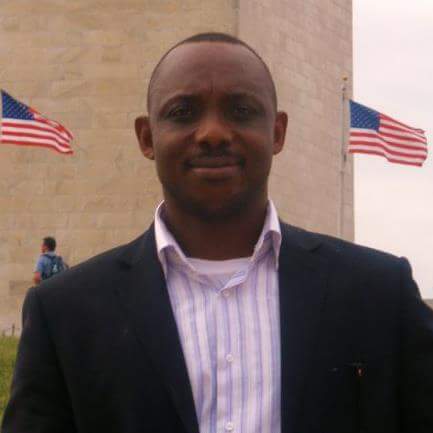By CrossRiverWatch Admin
The Bakor Nation is today largely misunderstood and appropriated to identify and typify the Ejagham sub-groups of Ikom Local Government Area Constituency II communities and clans, as well as all of Ogoja Local Government Area’s communities and clans besides the Mbube grouping.
However, some three to four decades ago or so, the Ejagham language words ‘Ba’ (come) and ‘kor’ (take or receive) were crafted by some primogenitors of the Ejagham movement as mutually intelligible words that can create a common linguistic identity for Ejagham subgroups of all hues and shades of dialectical distinctions in Cross River State.
The implication is that there is a common meaning and understanding for the words ‘ba’ and ‘kor’ in any and all communities of Ejagham origin wherever they may be located.
The word Ejagham in itself means ‘movement’ depicting the itinerant nature of the people occupying almost all of the South-West Cameroons and a large part of the three Senatorial Districts of Cross River State.
They are believed to be part of the Bantu stock that migrated from Central Africa centuries ago. They are as well the originators of the Mgbe (Ekpe) Society with its arcane and intricate ‘nsibidi or nsibiri’ symbols and writings, as well as the ‘Obasi-Njom’ legend.
The Ejagham people and communities straddle a greater part of both sides of the international border boundaries and the adjoining hinterlands between Nigeria and Cameroun at Cross River State – from the rich savannah grasslands through the dense tropical rainforests with thick interlocking canopies and lianas to the raging Atlantic Ocean Southwards.
Some have opined based on settlement patterns, contiguity and historical evidence on both sides of the divide that the now famous ‘Bakassi’ Peninsula is an Ejagham word transliterated as – ‘mba’ (road) ‘akassi’ (no reach): ‘Bakassi – unreachable by road’.
The Ejagham have a thing about naming their settlements after certain objects or events that may also be tied to the name of the founder of the settlement. So in Cross River State you would have for instance ‘Mfamosing’ – the town of ‘ogbono’ (bush mangoes), ‘Okot-oba’ (Okoroba) – if you like you come: it is in the heart of the tropical rainforest, ‘Ayibeku’ – water for toileting and so on.
Whereas in the Camerouns you come across; ‘Eyumojok’ (the voice of Elephants), ‘Nsan-Akang’ – Nsan of salt, ‘Nsan-araghati’ – Nsan of tree climbers and so on. Thunder is the key meaning of ‘Nsan’ in Ejagham language but people also bear the name.
In Cross River State, the Ejaghams are well spread from North to South as follows:
In the northern senatorial district:
All of Ogoja local government area (Ishibori, Ibil, Ekajuk, etc) except the Mbube grouping directly is of Ejagham origin (they seem to have adopted ‘Bakor’ for their identity).
In the central senatorial district:
All of Etung local government area (Southern and Northern Etung) are of the Ejagham stock. About all of Ikom local government area constituency I and II (Ofutop, Akparabong/Bendeghe-Afi, Balep/Opu, Nde/Ayughasa, Nta/Nselle, Abayom and Nnam, etc) are all of Ejagham stock excepting ‘Yala-Nkum’ that trace their origins to Yala’s of Yala local government area, and the ‘Akams’ who have their origins traceable to Mbembes of Obubra. Okuni and part of Ikom Town/Adjijinkpor (Bokomo) are held to have common ancestry with the Yakurr people of Yakurr local government area.
However, Ikom town as well largely features Ejagham origins in its matrix. Traditionally, Ikom town has seven towns or villages within it and majority of these villages have Ejagham names that should indicate their origins:
1. ‘Bokomo’ (traditional father community said to have ancestral affinity with Yakurr ethnic group)
2. ‘Enoghi’ (traditional mother community) Name derived from Ejagam word ‘fight’ or ‘war’ implying they were mainly warriors and hunters). ebai anor na enogh – ‘we came with fight or war’.
3. ‘Etai-ayip (Etayip)’ – name derived from Ejagham and transliterated from Ejagham language as ‘stone of water’. That still exists there today.
4. ‘Bisogho’ – (der esogh agor na abor). Ejagham origin – transliterated as ‘let’s find a space within them’ or ‘let’s tuck ourselves in with them’.
5. Mgbek-atiti (Mgbaghatiti). Ejagham origin – transliterated as ‘cutters of little trees’ or ‘we cut little trees to arrive here’.
6. Isabang: Held to have some Mbembe (Obubra) origin.
7. Assenassen. Largely connected with the Adjijinkpors of Ikom Urban II.
In southern senatorial district:
All of Akamkpa local government area is of Ejagham stock. Part of Odukpani local government area (New Netim and so on) are of the Ejagham stock. Almost all of Calabar municipality (Big Qua, Akim Qua, Ikot Ansa, Akim-Akim Qua and so on) are of the Ejagham stock.
The take away from this exposition is that all Ejagham communities so mentioned in both Cross River State – Nigeria and South-West Cameroons all have same meaning and understanding of the words ‘ba’ – ‘kor’. It may therefore create some sense of alienation and disunity if certain groupings or sub-cultures choose to identify themselves as such for may be politico-economic reasons to the exclusion of other members of the same linguistic and ethnic origin. It also speaks to some sense of a conflict or crisis of identity.
All said, as Socrates said: “Man know thyself.” For me part of the knowing of self is not only about being ‘illuminated’ but also knowing your origins and identity as a person or a people. This exposition is therefore intended to serve as a clarion call for promoting the Ejaghams knowledge of themselves, as well as engendering unity, love, peace and progress!
Merry Christmas!
Ceejay Ojong, an Economist, Chartered Accountant and Public Financial Management expert who has an inclination and deep interest in history, writes from Abuja via: ceejayojong@yahoo.com
